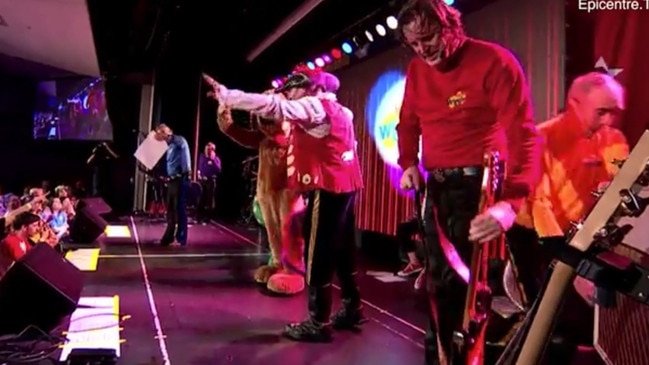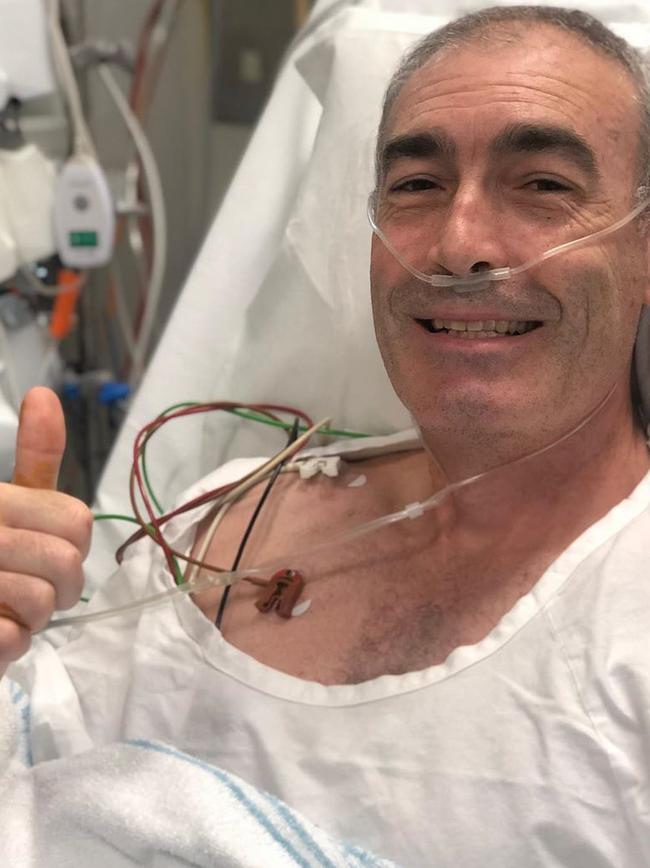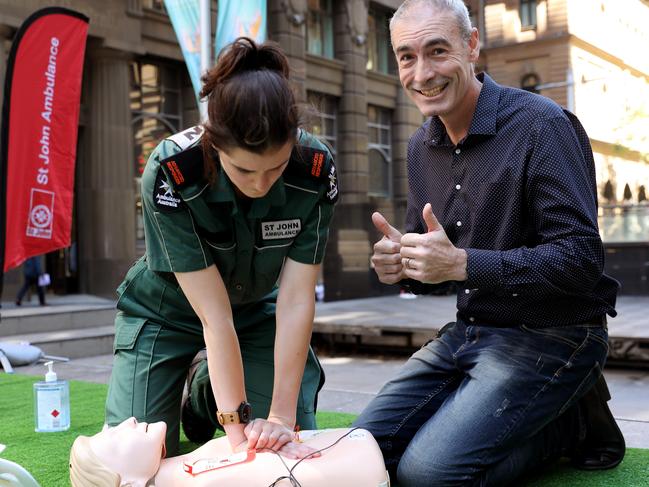Yellow Wiggle Greg Page wants more Australians to learn CPR to save lives
Sudden cardiac arrest almost took the life of Yellow Wiggle Greg Page back in 2020, but the quick thinking actions of others saved him. Now he wants to make sure others are just as fortunate.

Greg Page doesn’t remember much of the night he almost died.
It was February 2020 and the original Yellow Wiggle was performing at a Sydney RSL club to raise money for the catastrophic bushfires raging through the eastern states.
One moment he was singing alongside his old bandmates, the next he was waking up in hospital after suffering a sudden cardiac arrest.
Kim Antonelli remembers the night in vivid detail. She had been working the merchandise stand when Page ran off stage and her first aid training kicked in.
“When I first got there, he was grey … the colouring of his skin, it was a terrible colour,” Ms Antonelli said.

For 12 minutes, she and a makeshift medic team of audience members and staff performed cardiopulmonary resuscitation on the then-48-year-old until an automated external defibrillator was found and made his heart start beating once more.
“It was second nature,” she said. “Everything just fell into place. The CPR, AED, the ambulance people, the hospital, he’s so blessed.”
Now Page is on a mission to arm 20,000 Australians with the skills to perform the life-saving measure and map the location of thousands of AEDs to hopefully save the lives of others who are unfortunate enough to find themselves in his position.
“I was extremely fortunate,” Page said.
“If you can get one person in each suburb around Australia trained up in how to do CPR, and access that AED … then it could just be enough to save a life.”

Every year, as many as 28,000 Australians experience a sudden cardiac arrest outside of a hospital setting. Only one in 10 survives.
If people receive immediate care with CPR followed by effective use of AED, their survival rates in out-of-hospital cardiac arrest can significantly improve, increasing from about 10 per cent to 70 per cent.
“The fact is, 80 per cent of sudden cardiac arrests happen at home so it’s likely to be somebody you know, love and care about,” Page said. “Knowing how to respond and being prepared to respond, is the most crucial thing.”
Over the past three years, he has created the free Heart of the Nation app to help track and locate publicly accessible AEDs, provide a short course to train people in CPR and signal for assistance to those nearby if someone goes into cardiac arrest.

Director of Cardiology at Sydney’s Westmead Hospital Robert Denniss is hoping the program will help make his job easier and ensure more people survive.
“We have to extend that teaching to the general community so we turn bystanders into actual active responders so that the general population feels empowered to recognise a cardiac arrest and to reform CPR and get help and convert people who would otherwise die into survivors,” Professor Denniss said.
Mr Page has supported government initiatives to issue more public AEDs and helped communities better identify those already present.






To join the conversation, please log in. Don't have an account? Register
Join the conversation, you are commenting as Logout